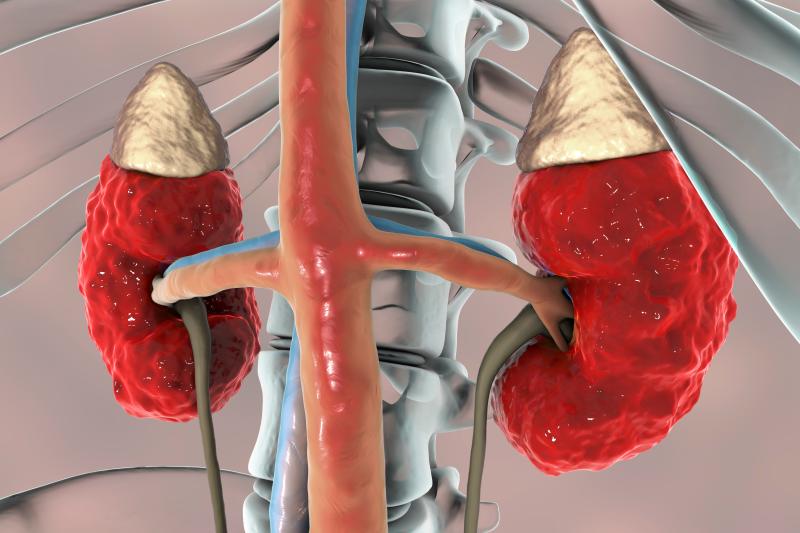
Elevated myeloperoxidase (MPO) levels in patients with chronic kidney disease (CKD) are associated with increased susceptibility to disease progression but not to cardiovascular disease (CVD) and death, a recent study suggests.
The study used data from the Chronic Renal Insufficiency Cohort (CRIC) and included 3,872 participants who had MPO measured at baseline. Researchers performed Cox proportional hazards analysis to examine the effect of MPO on CKD progression (kidney transplantation, dialysis initiation, or 50-percent decline in baseline estimated glomerular filtration rate [eGFR] and eGFR ≤ 15 mL/min/1.73 m2), CVD (heart failure, myocardial infarction or stroke) and death.
In multivariable models, higher MPO level (per 1-standard deviation [SD] increase in log-transformed MPO) conferred a 10–13-percent increase in the risks of CKD progression (adjusted hazard ratio [HR], 1.10, 95 percent confidence interval [CI], 1.01–1.19; p=0.03), CVD (adjusted HR, 1.12, 95 percent CI, 1.03–1.22; p<0.01) and death (adjusted HR, 1.13, 95 percent CI, 1.04–1.22; p<0.01).
Of note, baseline eGFR appeared to modify the association of MPO level with CKD progression (p-interaction=0.02) but not with CVD (p-interaction=0.2) or death (p-interaction=0.1). Stratified analyses revealed MPO level to be correlated with greater risk of CKD progression among participants with eGFR >45 mL/min/1.73 m2 (adjusted HR, 1.23, 95 percent CI, 1.03–1.46; p=0.02) than those with eGFR ≤45 mL/min/1.73 m2 (adjusted HR, 1.10, 95 percent CI, 1.02–1.20; p=0.02). The associations for CVD and death were no longer significant following adjustment for cardiac biomarkers.
The study was limited by potential residual confounding due to lack of repeated measurements of MPO.